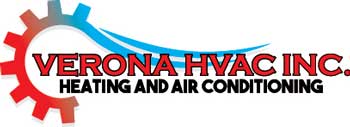
Significant changes are coming for the heating and cooling business! Cooling systems shifting from R-410a to newer refrigerants like R-454B refrigerant and R-32 refrigerant will be arriving in 2025. These new coolants are designed to be friendlier to the environment and comply with revised regulations about global warming. But what does that mean for your existing HVAC system and any new services?
This shift will reduce the environmental footprint of our air conditioning systems. Beginning in 2025, new AC systems will employ a a different class of refrigerants that better align with climate goals. If you're thinking about getting an AC replacement soon, this is the ideal time to explore how these changes can influence your home's comfort.
Why Exactly Is R-410a Being Phased Out?
For years, R-410a was the standard refrigerant for residential air conditioners because of its effectiveness. But research uncovered that R-410a still affects global warming. Because of this, the Environmental Protection Agency (EPA) implemented a strategy back in 2021. The industry will progressively phase out R-410a to introduce refrigerants that are more environmentally friendly.
The HVAC industry has made transitions like this before. When the industry phased out R-22 (commonly called Freon) to R-410a, residents like you had to adapt. And in the same way, this transition will influence how systems are designed as well as the recommended procedures for HVAC maintenance. Both homeowners and HVAC technicians need to prepare for these new refrigerants if they want to continue enjoying the most reliable, most cost-effective cooling possible.
New HVAC Refrigerants Replacing R-410a?
The upcoming refrigerants are categorized under the new "A2L" classification and contain the newest R-454B refrigerant and R-32 refrigerant coolants. They're engineered to offer the same effective cooling while greatly lowering their global warming potential (GWP) compared to R-410a.
R-454B refrigerant is expected to be particularly useful due to its GWP being about 78% less than R-410a. Although R-454B refrigerant is believed to be more flammable than R-410a, improvements to system designs and maintenance practices will ensure servicing is just as safe to perform. In addition, modern cooling systems using R-454B refrigerant are much more energy efficient, resulting in substantial savings on energy bills over time, especially if you maintain your system with routine HVAC maintenance.
This switch isn't only about substituting the refrigerant—it affects the whole HVAC system because the properties of R-454B refrigerant make it incompatible with older systems. Ultimately, every household and business using R-410a will be required to transition to one of the new systems.
R-410a Replacement: How Can I Prepare to Transition to New HVAC Refrigerants?
Transitioning to the new refrigerants will not be as straightforward as substituting what's used in your current HVAC system. That's because the distinct properties of R-454B refrigerant and R-32 refrigerant mean you can't use them in a system that uses R-410a. But rest assured—you can still use your current R-410a system for now. Just remember that as time progresses, the cost of repairs and tune-ups will rise as R-410a becomes scarcer.
Planning ahead is the most effective way to manage things. If your AC system is already nearing the end of its lifespan, this is the ideal time to consider investing in a newer model that uses the new R-454B refrigerant. Plus, the staff here at Verona HVAC can assist you in switching with flexible options for HVAC replacement financing.
Which HVAC Refrigerant Is in My Air Conditioner?
Uncertain which refrigerant your AC system uses? In general, you can easily locate this information by examining the label on your outdoor unit. This label displays the type of refrigerant, the model number and many other particulars about your cooling system.
But if you are unable to decipher the label or are missing your user manual, don't worry! You can always call one of the professional technicians at Verona HVAC to help you in figuring it out. Get all the information you need by reaching out at 661-449-9765.
